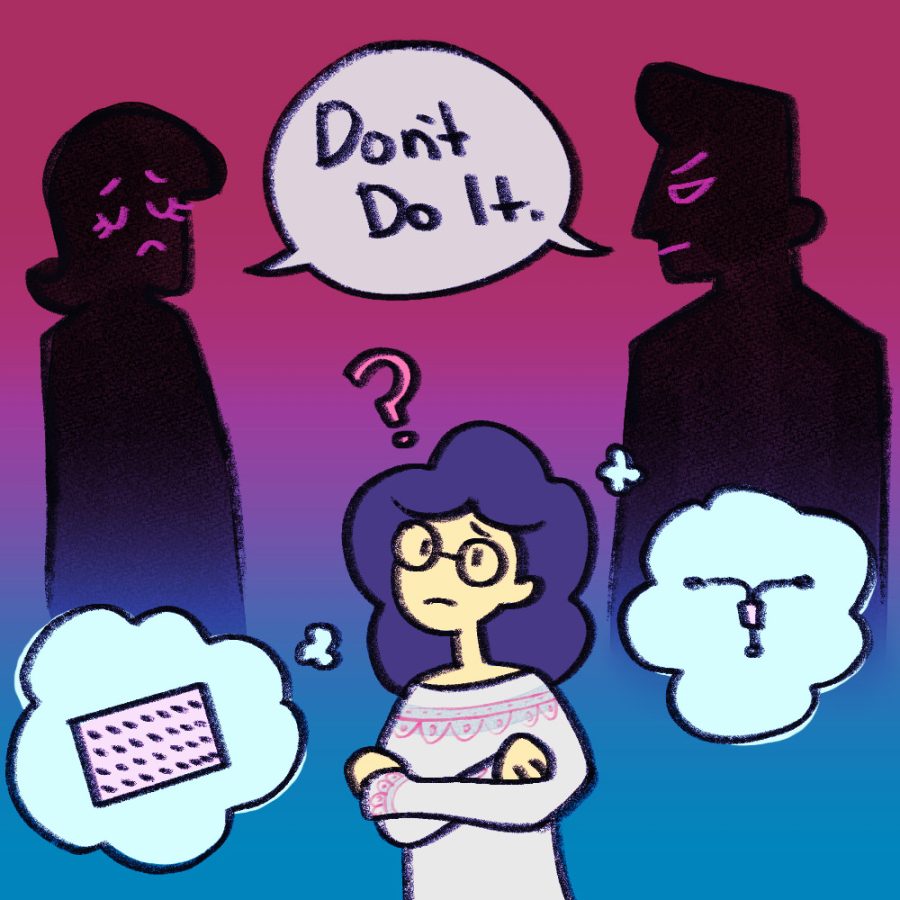Latino parents avoid the sex talk
February 28, 2023
When children reach puberty, their parents often approach them to discuss changes in their bodies and answer questions about sex. For many Latino teenagers, this is not the case.
According to the National Library of Medicine, Hispanic parents hold back from having conversations about sexual and reproductive health. The sex talk is a cultural taboo.
According to Pew Research, only 39% of Latino parents discuss birth control in their households. Even with 53% of Latino youth reporting having discussed sex at some point, it is not enough to fulfill the need for more sexual education in our homes.
The few conversations I had with my parents where sex was implicitly discussed were mostly warnings to wait until marriage. My parents would only tell me “Take care of yourself” or “Don’t you dare do it.” With that implicit warning combined with the constant exposure to sexuality on television, movies and music, I could only wonder what the mystery behind sex was, and why we should not talk about it.
I felt as if I was left alone in an educational journey that was overwhelming, especially during my pre-teen years.
According to Pew Research, 77% of Christian Latino parents correlate sex with being impure, sinful and negative.
Contraceptives, sexuality and consent were no-go topics in my inner circle. My curiosity grew, but the only place I could turn to was social media and the internet.
According to the National Center for Biotechnology Information, machismo culture is predominant within the Latino community, and there are disparities between how sex is viewed for men and women.
Erika Guevara-Rosas, Americas director at Amnesty International, said, “Comprehensive sexuality education is a fundamental tool for the defense of human rights … from gender-based violence and inequality to problems related to sexual and reproductive health.”
Despite living in a conservative environment, male friends and classmates were vocal about their experiences. I had to sit in silence, trying to understand why it was easier for them and not for me.
Young people may look for sexual health information on platforms such as TikTok and YouTube. Many sex educators are using these platforms to create a safe space for those looking for information. That is not enough to substitute real sex education at home or at school.
The Planned Parenthood website was the only reliable source I had to understand what options were available for me.
According to the Pan American Health Organization, 15% of pregnancies in Latin America occur in women under the age of 20. This is a clear reflection of the lack of sexual education in schools and homes, and something I was deeply afraid of.
After moving to the U.S., my exposure to sex ed amplified. After 19 years of living in Honduras, where the morning after pill is illegal and contraceptives are not available for women, being able to access these resources was a breath of fresh air.
At this point, I still never had the sex talk with my parents. Even if we discuss politics, religion and sports, it seems like the line was drawn when I wanted to ask them about birth control. Concepts such as consent, the use of contraceptives, preventing a pregnancy and sexually transmitted diseases are not exempt when discussing reproductive health.
Due to my parents’ conservative upbringing, these important concepts were never spoken about.
As a daughter of young Latino parents, I understand why they never wanted to discuss my reproductive health and having sex, since they feared I would eventually continue the generational cycle of having kids at a young age. Even the thought of their daughter beginning her sexual journey seemed unimaginable.
Sex is part of human nature, and as embarrassing as it might feel to have a conversation, it is imperative to protect ourselves from the overwhelming amount of information and misinformation online.
Not having these conversations at home is harmful, not only for our generation, but for our parents as well.
The generational cycle continues and the stigma around sex is far from broken. It is better to be safe than sorry, especially when it comes to our reproductive health.


